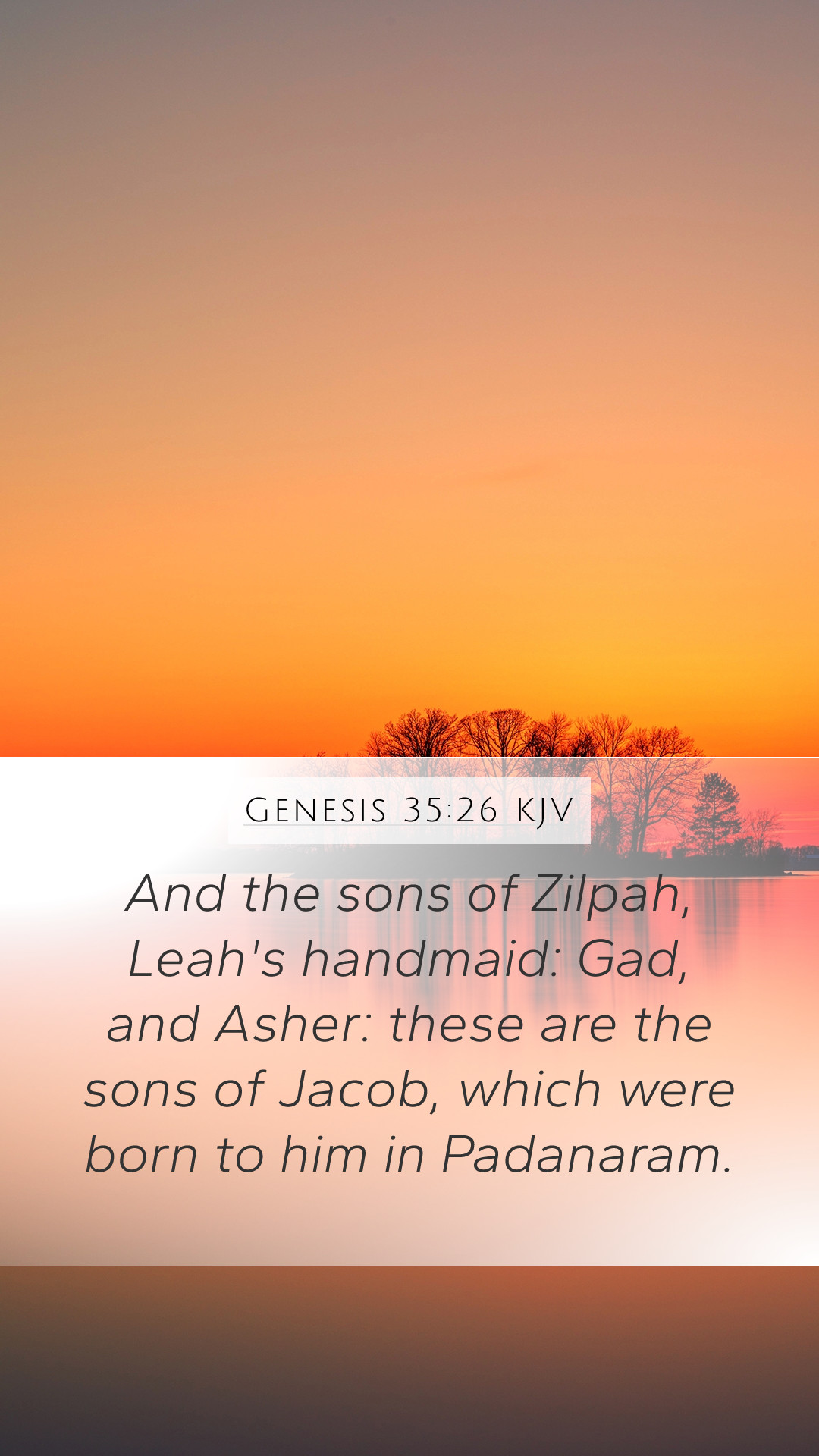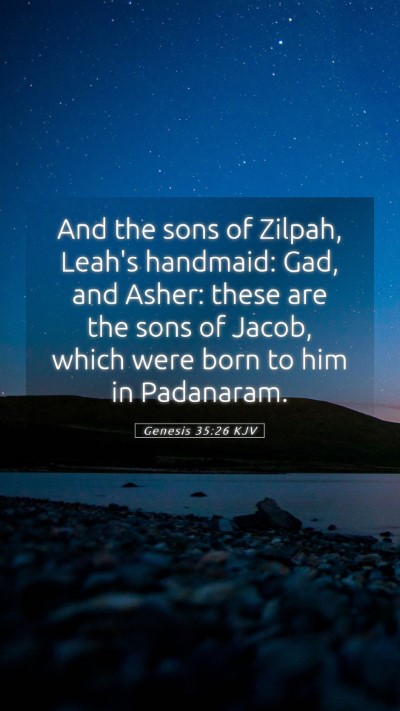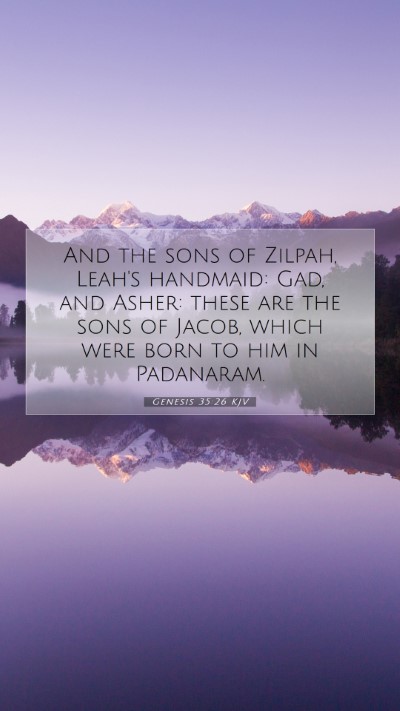Understanding Genesis 35:26
Bible Verse: Genesis 35:26 - "And the sons of Jacob were twelve:"
Overview
This verse is a straightforward statement that serves as a genealogical marker in the book of Genesis. It highlights the twelve sons of Jacob, who are foundational figures for the tribes of Israel. This verse does not contain complex theological language, but its significance can be expounded upon through various commentaries to yield a deeper understanding.
Commentary Insights
- Matthew Henry's Commentary:
Matthew Henry interprets Genesis 35:26 as significant in establishing the lineage of Israel. The mention of the twelve sons is crucial as it indicates the fulfillment of God's promise to multiply Jacob's descendants. Each son becomes a progenitor of one of the future tribes of Israel, thus playing a vital role in the unfolding narrative of God's chosen people.
- Albert Barnes' Notes:
Albert Barnes emphasizes the importance of the list of the twelve sons. He points out that they represent the fullness of Israel, highlighting the twelve tribes' structure. Barnes also reflects on the implications of these names, noting the historical context where each son signifies not just Jacob's offspring but also the diverse characteristics and destinies of each tribe formed from these sons.
- Adam Clarke's Commentary:
Adam Clarke provides an analysis that situates Genesis 35:26 within the broader narrative. He suggests that the twelve sons symbolize the completeness and covenant community of Israel. Clarke delves into the historical importance of these figures, noting how their lineage informs future generations and the development of Israel’s identity as a nation under God's covenant.
Interpretation & Significance
The verse encapsulates a moment of historical and spiritual significance. The twelve sons are the foundational figures of the Israelite tribes, and their mention underscores God's promise to Jacob and his descendants.
This verse also serves as a reminder for believers today about the significance of family and heritage in the biblical narrative. The lineages are not merely historical facts but are deeply intertwined with the divine plan laid forth by God.
Application
In applying the meaning of Genesis 35:26 to daily life, readers are invited to reflect on their own familial heritage and its implications on their identity and faith journey. Understanding one’s roots can promote a sense of belonging and responsibility towards future generations.
Cross References
- Genesis 29:32-35 - The births of Jacob's sons.
- Genesis 49 - Jacob's blessings on his sons.
- Exodus 1:1-5 - The sons of Jacob who came to Egypt.
- Jeremiah 33:24-26 - God's promise to the house of David and the Levites.
- Matthew 1:2-16 - The genealogy of Jesus through the tribes of Israel.
Conclusion
Genesis 35:26 serves as an essential verse in the context of biblical history, providing Bible study groups and individuals with a genealogical reference that enriches their understanding of Scripture. Through the reflections offered by various biblical commentaries, the meaning of this verse and its implications can be explored in-depth, enhancing the reader's biblical exegesis and interpretation skills. As believers engage with the text, they can discover profound insights that apply to their lives and communities.


